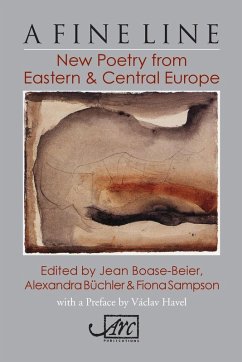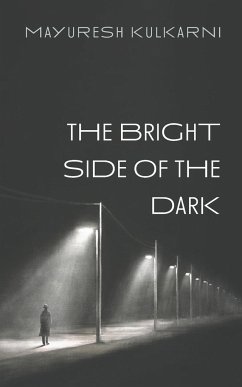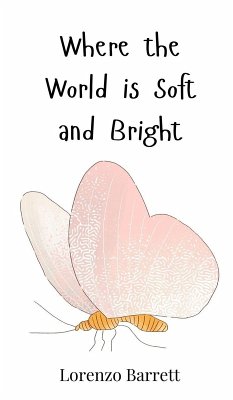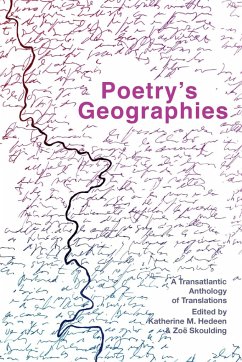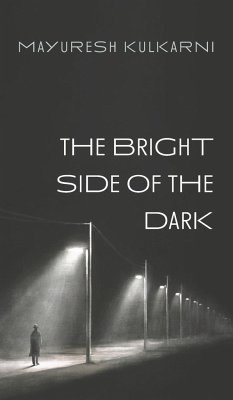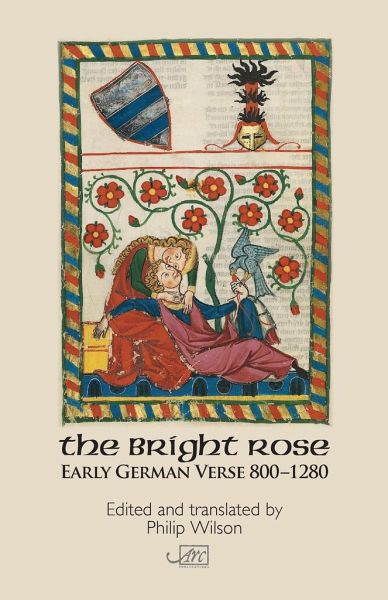
The Bright Rose
Early German Verse 800-1250
Herausgeber: Wilson, Philip

PAYBACK Punkte
6 °P sammeln!
Never published in verse form before, these translations of some of the earliest known German poetry give us a rich glimpse of a life that, while alien in so many ways, was not so different after all. The Minnesang poets, for example, engage in a highly professional ritual, but compose in cognitive metaphors that still ring true: love is a trap; love is a game; love is war. A beautiful, lyrical journey through the passions and fears of pre-Medieval German life, told by some of its finest poetic voices. The Bright Rose is a selection of German poetry from its beginnings until its mediaeval flou...
Never published in verse form before, these translations of some of the earliest known German poetry give us a rich glimpse of a life that, while alien in so many ways, was not so different after all. The Minnesang poets, for example, engage in a highly professional ritual, but compose in cognitive metaphors that still ring true: love is a trap; love is a game; love is war. A beautiful, lyrical journey through the passions and fears of pre-Medieval German life, told by some of its finest poetic voices. The Bright Rose is a selection of German poetry from its beginnings until its mediaeval flourishing, translated from Old High German and Middle High German by Philip Wilson. It presents an overview of a society in transition as it moves from a Germanic to a Christian world view. The first part of this volume contains some of the most important poems written from the ninth to eleventh centuries by anonymous monks in their own dialects. Among them we find the bleak and uncompromising 'Song of Hildebrand', the oldest recorded poem in High German written around 800; 'Muspilli', a Christian vision of the end of the world overflowing with pre-Christian imagery; and 'The Song of Ludwig', a song of praise to a victorious king. By contrast, the second part is a collection of lyric verse, for the most part love songs written by named poets in Middle High German (roughly equivalent to Chaucer's English) in the twelfth and thirteenth centuries, a period described by scholars as 'the time of flourishing'. Philip Wilson's choice of poems, his inventive translations and his illuminating introduction give not only an invaluable overview of the earliest German poetry in written form, but also show that human nature may not have changed as much as the German language has.





